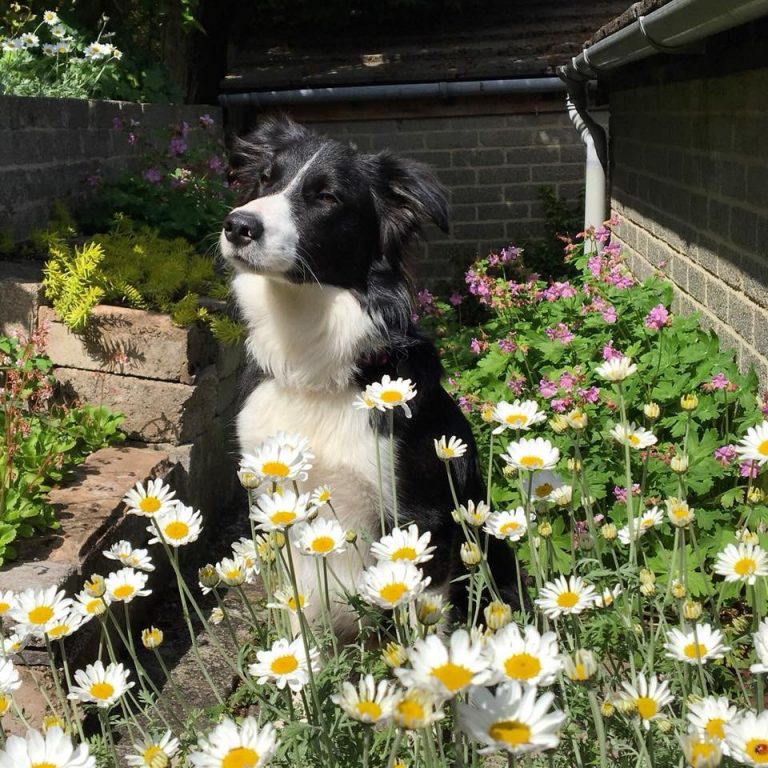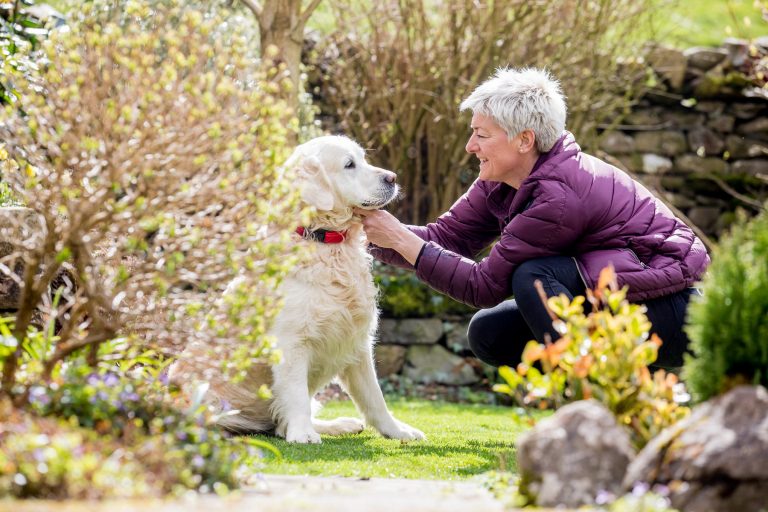Are plants dangerous to dogs?
It is easy to forget that some of the plants we are commonly used to seeing in our gardens and homes can actually pose a threat to the health and welfare of our precious pets. In some cases they can even prove poisonous and so it’s important to learn which varieties pose a threat. Many common plants have some element of toxicity or irritation but will cause nothing more than an upset stomach. Others are very toxic, although may need to be eaten in large quantities to do serious harm.
Whilst we as humans understand that if it’s not a food plant we shouldn’t eat it, dogs aren’t quite as fussy, although some naturally won’t eat plants that are poisonous to them. If you suspect that your dog has ingested a poisonous plant you should immediately seek veterinary advice, even if they do not appear to be unwell. You should do your best to take a sample of the plant in question to the vet also.

Which plants are poisonous to dogs?
Several common garden plants pose risks to dogs, including azaleas, daffodils, morning glory, oleander, rhododendrons, tulips, and yew. It’s essential for dog owners to familiarise themselves with these plants and take precautions to prevent their pets from accessing them.
According to the Kennel Club, the UK’s largest organisation dedicated to the welfare of dogs, some of the most common house and garden plants which are poisonous to dogs are:
- Delphinium: Delphiniums, while visually stunning in gardens, contain alkaloids that are toxic to dogs if ingested. Symptoms of delphinium poisoning include gastrointestinal upset, drooling, tremors, and even cardiac abnormalities.
- Hydrangea: Hydrangeas contain chemicals which can lead to vomiting, diarrhoea, lethargy, and in severe cases, cardiovascular collapse. Even the water from the vase containing hydrangea flowers can be toxic to dogs.
- Wisteria: Wisteria pods and seeds can cause nausea, vomiting, diarrhoea, and abdominal pain if consumed by dogs. In severe cases, wisteria ingestion can lead to kidney failure.
- Ferns: Certain fern species like the asparagus fern are toxic to dogs. Ingestion can cause stomach upset, skin irritation, and in severe cases, difficulty breathing.
- Rhubarb: Rhubarb leaves contain oxalates, which can cause drooling, vomiting, diarrhoea, and tremors if ingested by dogs. Ingestion of large quantities can lead to kidney failure.
- Lupins: Lupins contain alkaloids that are toxic to dogs, leading to symptoms such as vomiting, diarrhoea, lethargy, and depression. In severe cases, lupin ingestion can cause convulsions and coma.
- Laburnum: All parts of the laburnum plant, including the seeds, pods, and flowers, contain cytisine and other alkaloids, which can cause vomiting, diarrhoea, tremors, seizures, and even death in dogs if ingested.
- Lilies: Certain lily species, such as Easter lilies and tiger lilies, are highly toxic to cats and can also pose a danger to dogs. Ingestion can lead to kidney failure, vomiting, lethargy, and loss of appetite.
- Asparagus Fern: Asparagus ferns contain sapogenins, which can cause gastrointestinal upset, skin irritation, and allergic reactions in dogs if ingested or touched.
- Foxgloves: Foxgloves can cause vomiting, diarrhoea, cardiac arrhythmias, and even heart failure if ingested by dogs.
The Dogs Trust has created a factsheet with a list of plants which have varying toxicity to dogs, which is also very useful when studying what plants are poisonous to dogs.

Indoor Plants That Are Toxic to Dogs
When buying a house plant for yourself or as a gift for someone with children or pets, it is important to check the label for toxicity warnings and do some research. Popular Christmas gifts such as pointsettia plants, lillies and amaryllis and decorative Christmas foliage, such as holly and mistletoe, can cause serious harm to dogs.
Dangers While Walking
While many plants encountered during walks may not be poisonous to dogs, certain vegetation can still pose risks. Dogs may ingest grass, weeds, or berries that could cause gastrointestinal upset or allergic reactions. It’s essential for dog owners to monitor their pets during outdoor activities and prevent them from consuming unknown plants. If a dog exhibits any unusual symptoms after ingesting vegetation, prompt vet attention is necessary to ensure their well-being.
Award winning care for your dog
At Barking Mad Dog Care, we understand that dogs really do become part of the family. It can be worrying when you have to go away and leave your dog and you may be concerned about their welfare. At Barking Mad, we provide reassurance by completing a pet schedule with you and placing your dog in a loving host family home. Pet owners who use our award-winning dog home boarding service, provide all their dog’s usual food, treats, bedding and other essentials, so that continuity is ensured for their best friend.
Please note: Barking Mad, the UK’s leading home dog boarding provider, assumes no liability for the content of this page. This advice is not a substitute for a proper consultation with a vet and is only intended as a guide. Please contact your local veterinary practice for advice or treatment immediately if you are worried about your pet’s health – even if they are closed, they will always have an out of hours service available.




